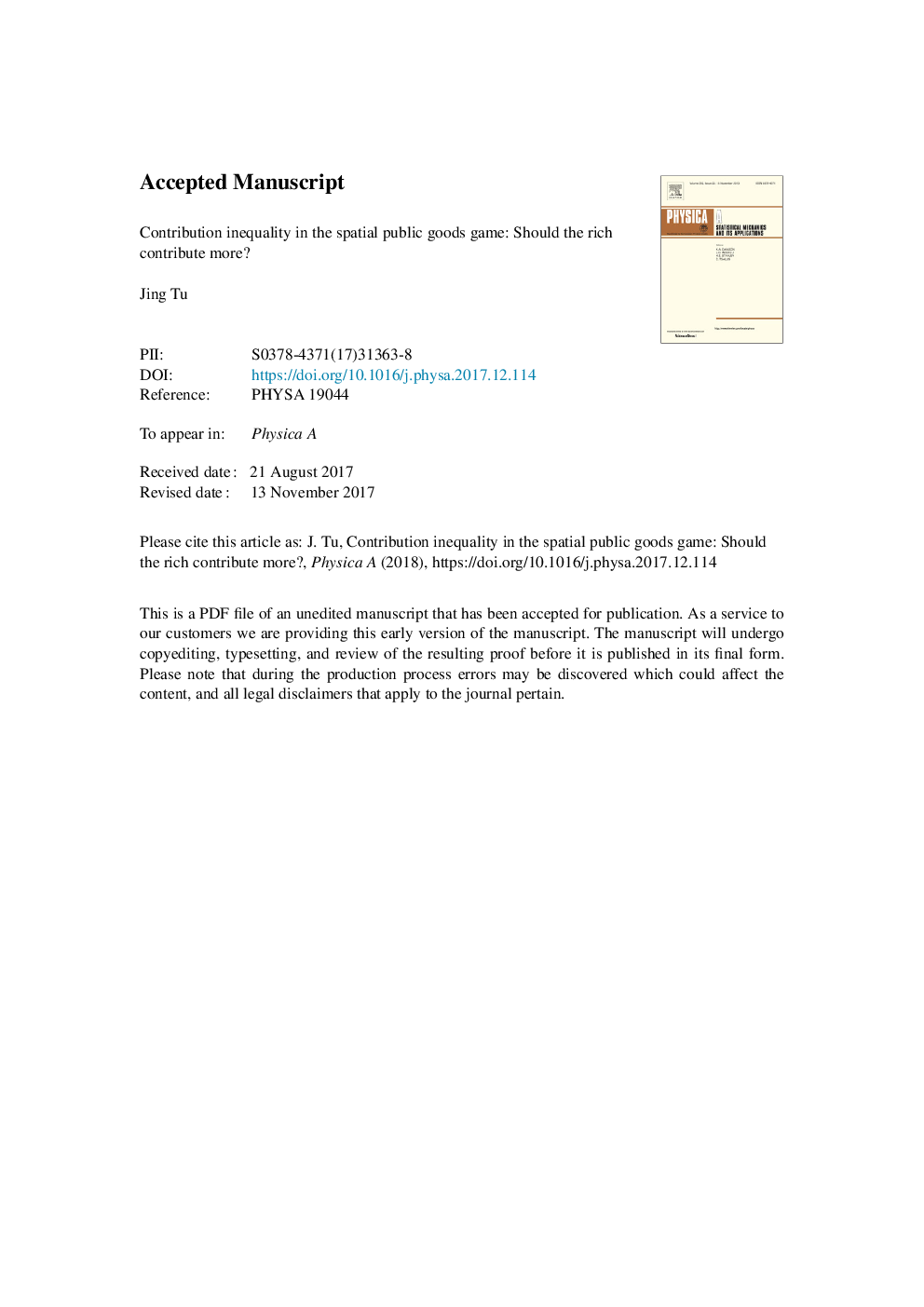| Article ID | Journal | Published Year | Pages | File Type |
|---|---|---|---|---|
| 7375950 | Physica A: Statistical Mechanics and its Applications | 2018 | 13 Pages |
Abstract
Scale-free property exists in resource distribution, and the rich pay more in public goods is commonplace in reality. What will happen if the rich are expected to contribute more in the spatial public goods game? This paper therefore proposes a new contribution paradigm, in which individual contribution is determined by his payoff in the last evolution step. Tunable parameter w is used to characterize the contribution rate of nodes whose payoff is larger than the average. The results of simulations reveal that the impact of w on cooperation is associated with the enhancement factor r. When r is low, the higher w is, the lower the cooperation rate is. With the increment of r, the value of w to optimize cooperation rate increases with r. The relationship of cooperation rate and wealth on the network has also been investigated. Interestingly, higher cooperation rate does not always lead to higher wealth. Finally, the impact of w on the wealth distribution on the network is explored. The higher w reduces the inequality in wealth distribution by the shrinking of lower-class, which is enhanced by a higher r.
Related Topics
Physical Sciences and Engineering
Mathematics
Mathematical Physics
Authors
Jing Tu,
